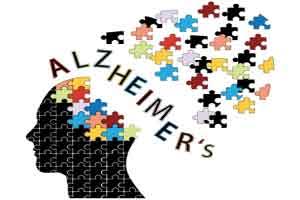- Home
- Editorial
- News
- Practice Guidelines
- Anesthesiology Guidelines
- Cancer Guidelines
- Cardiac Sciences Guidelines
- Critical Care Guidelines
- Dentistry Guidelines
- Dermatology Guidelines
- Diabetes and Endo Guidelines
- Diagnostics Guidelines
- ENT Guidelines
- Featured Practice Guidelines
- Gastroenterology Guidelines
- Geriatrics Guidelines
- Medicine Guidelines
- Nephrology Guidelines
- Neurosciences Guidelines
- Obs and Gynae Guidelines
- Ophthalmology Guidelines
- Orthopaedics Guidelines
- Paediatrics Guidelines
- Psychiatry Guidelines
- Pulmonology Guidelines
- Radiology Guidelines
- Surgery Guidelines
- Urology Guidelines
Blood test for Alzheimer's disease comes a step closer

New York: Researchers have found that a protein, the levels of which can be easily monitored in routine blood tests, could serve as a new biomarker for Alzheimer’s disease that slowly destroys memory and thinking skills.
For the study, the international team of researchers assessed the levels of activity-dependent neuroprotective protein (ADNP) in elderly individuals at risk for Alzheimer’s disease.
“We have found a clear connection between ADNP levels in the blood and amyloid plaques (a hallmark Alzheimer’s) in the brain,” said lead researcher Illana Gozes from Tel Aviv University in Israel.
The study also found that ADNP levels tested in the blood correlate with higher IQ in healthy older adults.
The findings, published in the Journal of Alzheimer’s Disease, suggests that a routine blood test can reveal Alzheimer’s risk and IQ measurements.
Currently, the medical professionals have to conduct a long series of tests to assess a patient’s memory impairment and cognitive skills, functional abilities, and behavioural changes to accurately diagnose Alzheimer’s disease.
For the purpose of the study, the investigators analysed blood samples taken from 42 healthy adults, patients with mild cognitive impairment (MCI), and Alzheimer’s disease patients at Rambam Medical Center in Israel.
Significant increases in ADNP RNA levels were observed in patients ranging from mild cognitive impairment to Alzheimer’s dementia.
“This study has provided the basis to detect this biomarker in routine, non-invasive blood tests, and it is known that early intervention is invaluable to Alzheimer’s patients,” Gozes pointed out.
“We are now planning to take these preliminary findings forward into clinical trials — to create a pre-Alzheimer’s test that will help to tailor potential preventative treatments,” Gozes noted.
For the study, the international team of researchers assessed the levels of activity-dependent neuroprotective protein (ADNP) in elderly individuals at risk for Alzheimer’s disease.
“We have found a clear connection between ADNP levels in the blood and amyloid plaques (a hallmark Alzheimer’s) in the brain,” said lead researcher Illana Gozes from Tel Aviv University in Israel.
The study also found that ADNP levels tested in the blood correlate with higher IQ in healthy older adults.
The findings, published in the Journal of Alzheimer’s Disease, suggests that a routine blood test can reveal Alzheimer’s risk and IQ measurements.
Currently, the medical professionals have to conduct a long series of tests to assess a patient’s memory impairment and cognitive skills, functional abilities, and behavioural changes to accurately diagnose Alzheimer’s disease.
For the purpose of the study, the investigators analysed blood samples taken from 42 healthy adults, patients with mild cognitive impairment (MCI), and Alzheimer’s disease patients at Rambam Medical Center in Israel.
Significant increases in ADNP RNA levels were observed in patients ranging from mild cognitive impairment to Alzheimer’s dementia.
“This study has provided the basis to detect this biomarker in routine, non-invasive blood tests, and it is known that early intervention is invaluable to Alzheimer’s patients,” Gozes pointed out.
“We are now planning to take these preliminary findings forward into clinical trials — to create a pre-Alzheimer’s test that will help to tailor potential preventative treatments,” Gozes noted.
Next Story
NO DATA FOUND

Disclaimer: This site is primarily intended for healthcare professionals. Any content/information on this website does not replace the advice of medical and/or health professionals and should not be construed as medical/diagnostic advice/endorsement or prescription. Use of this site is subject to our terms of use, privacy policy, advertisement policy. © 2020 Minerva Medical Treatment Pvt Ltd